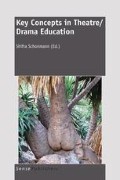Abstract
The term Lehrstücke, or learning-plays, describes a series of experimental works written in the 1920s and early 1930s by Bertolt Brecht and a number of collaborators, including Kurt Weill, Hanns Eisler and Elisabeth Hauptmann. The intention behind writing and performing these experimental plays was not necessarily to culminate in a finished, final product to be replicated exactly during each performance. Rather, the ideal Lehrstücke performance is also something of a rehearsal, or, as Frederic Jameson (1998) describes it, ‘one continuous master class’ (p. 62–63). Jameson suggests that the process of acting in a Lehrstücke is the end result: ‘the decision to act out this particular gesture; or not to act it out, or to act out its opposite–now proves to be the annulment of difference on another, and perhaps even more basic, one: namely, that between actors and public’ (p. 65). As performer and audience are synthesized, this opens up a new realm of possibilities for action and choice within the framework of the play.
Access this chapter
Tax calculation will be finalised at checkout
Purchases are for personal use only
Preview
Unable to display preview. Download preview PDF.
References
Brecht, B. (1964). The German Drama: Pre-Hitler. In J. Willett (Ed. & Trans.). Brecht on theatre: The development of an aesthetic (pp. 77-81). New York: Hill and Wang.
Brecht, B. (1997). He Said Yes/He Said No. In J. Willett & R. Manheim (Eds.), Bertolt Brecht, collected plays (Vol. 3, pp. 45-59, 333-342). London: Methuen.
Brecht, B. (2003). Theory of pedagogies: The major and the minor pedagogy, theory of pedagogies. In T. Kuhn & S. Giles (Eds.), Brecht on art and politics (pp. 87-92). London: Methuen.
Fischer, G. (1988). The Lehrstück experience on a contemporary stage: On Brecht and the GRIPS-Theater’s Voll auf der Rolle. Modern Drama, 31(3), 371-379.
Jameson, F. (1998). Brecht and method. London: Verso.
Mueller, R. (1994). Learning for a new society: The Lehrstück. In P. Thompson & G. Sacks (Eds.), Cambridge companion to Brecht (pp. 79-85). Cambridge: Cambridge UP.
Way, B. (1973). On trial. Edmonton, Alberta: Young Audience Scripts.
Willett, J. (Ed. & Trans.). (1997). Collected plays (Vol. 3). London: Methuen.
Author information
Authors and Affiliations
Editor information
Editors and Affiliations
Rights and permissions
Copyright information
© 2011 Sense Publishers
About this chapter
Cite this chapter
Hughes, E. (2011). Brecht’s Lehrstücke and Drama Education. In: Schonmann, S. (eds) Key Concepts in Theatre/Drama Education. SensePublishers. https://doi.org/10.1007/978-94-6091-332-7_32
Download citation
DOI: https://doi.org/10.1007/978-94-6091-332-7_32
Publisher Name: SensePublishers
Online ISBN: 978-94-6091-332-7
eBook Packages: Humanities, Social Sciences and LawEducation (R0)


